#UK Approved Covaxin
Text
भारत बायोटेक की Covaxin को मान्यता देगा ब्रिटेन, जानिए भारत के लिए क्यों है गुड न्यूज?
भारत बायोटेक की Covaxin को मान्यता देगा ब्रिटेन, जानिए भारत के लिए क्यों है गुड न्यूज?
हाइलाइट्स
भारत बायोटेक की कोवैक्सीन को मान्यता देगा ब्रिटेन
22 नवंबर से कोवैक्सीन लगवाए लोगों को क्वारंटीन नहीं करेगा ब्रिटेन
कोविशील्ड को पहले ही मंजूरी दे चुका है ब्रिटेन, भारत के लिए खुशखबरी
लंदनब्रिटिश सरकार भारत बायोटेक की कोवैक्सीन को मान्यता देने जा रही है। इस वैक्सीन को विश्व स्वास्थ्य संगठन ने कुछ दिनों पहले ही अपनी स्वीकृति दी थी। 22 नवंबर को कोवैक्सीन ब्रिटेन के अंतरराष्ट्रीय…
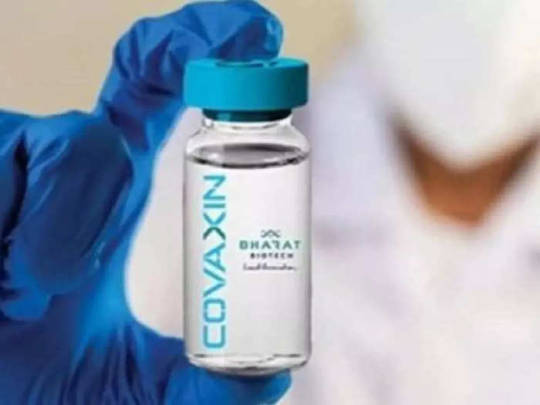
View On WordPress
#britain Headlines#britain News#britain News in Hindi#countries which accept covaxin#Covaxin Approved Countries#covaxin banned countries list#covaxin price#covaxin side effects#is covaxin approved for international travel#Latest britain News#latest covaxin approved who#UK Approved Covaxin#कोवैक्सीन को ब्रिटेन की मान्यता#कोवैक्सीन को मान्यता देने वाले देश#ब्रिटेन Samachar
0 notes
Text
UK includes India's Covaxin on list of approved vaccines for international travellers
UK includes India’s Covaxin on list of approved vaccines for international travellers
Image Source : PTI
A medic shows a vial containing doses of Covaxin, at a government hospital, in Kolkata
Highlights
Covaxin is India’s indigenously made vaccine.
International travellers are required to pre-book a PCR or Lateral Flow Test on arrival in England.
UK included Covaxin on its list of approved COVID vaccines after it received the WHO EUL status.
Bharat Biotech’s Covaxin has made…

View On WordPress
#approved list#approved vaccines#Bharat Biotech#covaxin#covaxin dose#covaxin first dose#covaxin india#covaxin second dose#covid Vaccination#travel guidelines#uk#vaccination certificate
0 notes
Text
India-made Covaxin now on UK approved travel list
India-made Covaxin now on UK approved travel list
Bharat Biotech-manufactured Covaxin, one of the vaccines being offered to protect against Covid-19 in India, is on the UK’s list of approved COVID-19 vaccines for international travelers from Monday.
It will further benefit fully vaccinated Indians planning to travel to the UK without the need for pre-departure PCR testing or self-isolation at the address declared on their mandatory passenger…
View On WordPress
#Covaxin#covid-19#Cowishield#current#current affairs#harpianews#India#Indian Express#Indian Express News#latest#news#UK#UK approved travel list#world news
0 notes
Text
U.K. to add Covaxin to its list of approved covid19 vaccines for International travellers
U.K. to add Covaxin to its list of approved covid19 vaccines for International travellers
U.K. to add Covaxin to its list of approved covid19 vaccines for International travellers
The U.K. government has said that India’s Covaxin will be added to its list of approved COVID-19 vaccines for international travellers from November 22, meaning that those inoculated with the Bharat Biotech-manufactured jab will not have to self-isolate after arrival in England.
The U.K. government has…
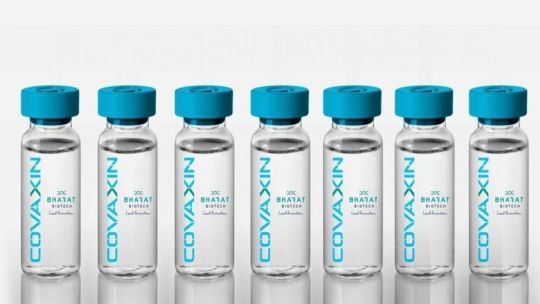
View On WordPress
#Bharat Biotech&039;s Covaxin#covaxin#covaxin news#covid19 uk#india Uk latest news#latest uk news#U.K. to add Covaxin to its list of approved covid19 vaccines for International travellers#UK#uk covid19#uk latest news#uk latest news today#UK news#uk news today#uk travel#uk travel news#uk variant
0 notes
Text
Vaccine Politics on the International Level
Vaccine Politics on the International Level
On Modi’s birthday (September 17th), India celebrated by vaccinating 20 crore people. However, the joy was short-lived, as other countries, such as the United Kingdom, continue to invalidate those who have been vaccinated.
UK has recognised Covishield as a vaccine as it is a licensed product of a UK company. Furthermore, the vaccine certificates issued in India have been refused recognition.…
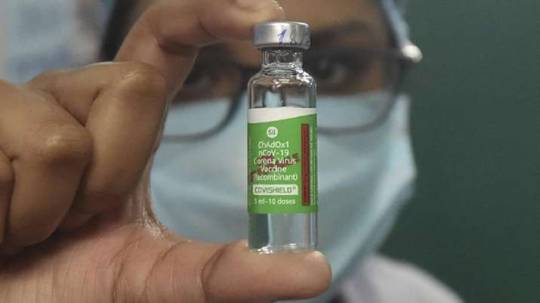
View On WordPress
#amber list#COVAXIN vaccine#Covaxin vs Covishield#COVID-19 Vaccine#Covishield approvals#Covishield approved#covishield vaccine#EMA approved vaccines#green list#UK Covishield#UK Vaccine Racism#US Indian Vaccines#vaccine certificate#Vaccine Passports#WHO covishield
0 notes
Text
Rules For International Scholars To Travel From India
Summary
International Scholars travelling from India have vaccination as their must-have criterion to study on-campus. However, the World Health Organisation (WHO) approved vaccines are only admissible, excluding those inoculated by Covaxin.
Indian Scholars will soon start planning their visit to international study destinations, with the fall intake of the 2021 academy year set to commence from August onwards.
Due to the New COVID-19 Virus Alternatives, Europe and Australia adopt a cautious approach towards allowing international Scholars.
INDIAN STUDENTS TRAVEL RESTRICTIONS
Vaccination may be a must-have criterion for international scholars to study on-campuses. However, the World Health Organisation (WHO) sanctioned vaccines are mandatory, which means that scholars inoculated with Bharat Biotech’s Covaxin might not be permitted entry.
Apart from this, a slew of regulations formed across countries for the entry of international Scholars. Intelligent Overseas Education is here to deliver you the rules for International Scholars to travel from India to key destinations:
TRAVEL TO CANADA FROM INDIA
Like the US, on a case-to-case basis, will offer Canadian Scholars visas to Indians. In addition, inoculation from the WHO-approved vaccine list may be mandatory to study in Canada for International Students.
However, once the visa interview slots opened on Flag Day, there was a sudden rush for bookings, leading to technical glitches.
“It is presumably going to get back to normal by July since the pressure will go down. After that, however, Scholars inoculated with Covaxin won’t be considered eligible to study in Canada,” said Romesh Parekh, founding father of HighEd Abroad Consulting.
Study in Canada | FAQs about Canada International Students Travel | Reach Us Here
TRAVEL TO UNITED KINGDOM (UK) FROM INDIA
While a blanket vaccination requirement has not been made compulsory for entering the United Kingdom (UK), Scholars with a legitimate visa can travel to the United Kingdom (UK) from India to study in the United Kingdom (UK) on-campus, often after an easing of lockdown in their country.
However, since India is among the countries on the “red list” on the United Kingdom (UK) travel restrictions due to many COVID-19 cases, Scholars will need to quarantine for ten days to monitor their health during this era as a part of quarantine rule in the United Kingdom (UK). Scholars also can register with the on-campus vaccination facilities available across the region.
Study in the United Kingdom (UK) | FAQs about United Kingdom (UK) International Students Travel | Reach Us Here
TRAVEL TO FRANCE FROM INDIA
France features a set of “Green countries” where cases of COVID-19 are low. Therefore, these individuals can enter the country with no restrictions to study in France. India, however, doesn’t figure on this list. Hence, it wouldn’t be an automatic approval process if a Scholars qualifies for a better education programme.
A case-to-case basis approval will commence as a part of France travel restriction process. Scholars must fully inoculate with WHO-approved vaccines to travel to France. And travel will be permitted only after a fortnight of the double dose.
Scholars who have caught COVID-19 within the past 14 days before the visa application hold a 4-6 week waiting duration before being acknowledged for travel as a part of the France quarantine process.
Study in France | FAQs about France International Students Travel | Reach Us Here
TRAVEL TO THE UNITED STATES (US) FROM INDIA
Current United States (US) travel restriction implies that Institutes across the US can allow international Scholars entry to on-campus programmes from the fall intake onwards. Vaccination is going to be a required mandate to study in the United States(US).
For the broad masses, the United States (US) has restrictions on travel from India. However, the authorities have made an exception within the case of Scholars who are about to study in the United States (US), with one significant caution on a case-to-case basis entry to be provided.
From August onwards, classes are starting in Some institutions. While a 12-16 week gap between two doses of the Covishield vaccine is the set norm in India, the Ministry of Health has made an exception for international Scholars planning international travel.
Sameer Patel, a better education consultant based in Delhi, said that Scholars should apply beforehand as the ‘blanket approval’ process has not yet followed.
“Each visa form is being completely reviewed to see if an on-campus appearance is needed. Those scholars who had contracted COVID-19 within the past one to 2 months should wait 3-4 months before travel,” he added.
Study in the United States (US) | FAQs about United States (US) International Students Travel | Reach Us Here
TRAVEL TO AUSTRALIA FROM INDIA
While Australian travel restrictions for India continue, there’s a proposal to permit international Scholars from India to study in Australia with a monthly cap.
A report said that a couple of travel locations allow international students to study in Australia. International Travel to Australia is to be at a rate of 800 Scholars per month, often likely to be allowed from the last week of July 2021.
Australian universities also are firming up plans to permit Scholars entry after one vaccination dose, subject to a health check-up. By July, Formal rules will be notified on this matter.
Study in Australia | FAQs about Australia International Students Travel | Reach Us Here
TRAVEL TO CHINA FROM INDIA
Close to 25,000 Indian Scholars pursuing medical courses in China have been held back in India since February 2020, when COVID-19 struck. The travel ban from India continues whilst vaccination picks up pace.
A report said that Indian Scholars who pursued study in China have written to the Ministry of External Affairs (MEA) seeking intervention to return to education on campuses.
Final-year medical Scholars can only get their degree once they complete 52-week internships at designated hospitals after their fifth year. So while Scholars from other regions like South Korea are back to campuses in China, Indian Scholars haven’t been permitted to travel to China from India.
Study in China | FAQs about China International Students Travel | Reach Us Here
THE MEA’S REQUEST TO INDIAN SCHOLARS
In India, the MEA has asked Scholars to hunt for help from its Overseas India Affairs (OIA) division about difficulties they’ll encounter in reaching their universities abroad for on-campus academic programmes.
Indian Students are most welcomed to join our Study abroad Education Community to get General Updates and clear queries for keeping a step towards success.
WhatsApp Us
Join Quora
#2021 intake#Indian Students Looking For University Admission#Indian Students Wanted To Study Abroad#covid vaccine#travel updates#astrazeneca#covaxin#moderna#pfizer#study in australia#study in usa#study in france#study in china#study in canada#fall intake
2 notes
·
View notes
Link
Govt of India has prepared an elaborate plan to roll out the vaccines. A multi level approach and mechanisms have been established, divided into National, state, district and block levels.
India has approved two vaccines — Covishield and Covaxin — for emergency use to fight Covid-19 pandemic in the country Covishield is the same vaccine that is being used in other countries including the UK. India's approval for Covaxin is conditional as it is still "in the clinical trial mode". Here is a comparison between the two Covid-19 vaccines approved in India:
1 note
·
View note
Photo
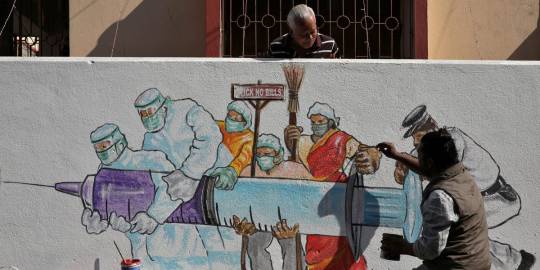
New Post has been published on https://freenews.today/2021/01/03/astrazenecas-covid-19-vaccine-has-been-approved-for-emergency-use-in-india-along-with-a-local-drugmakers-alternative-shot/
AstraZeneca's COVID-19 vaccine has been approved for emergency use in India, along with a local drugmaker's alternative shot

Health officials in India approved two COVID-19 vaccines on Sunday, including one made by AstraZeneca, for emergency use.
While announcing the emergency use, VG Somani, the country’s drug’s controller general said the vaccines were “110% safe,” according to The Times of India.
“A decisive turning point to strengthen a spirited fight,” India’s prime minister, Narendra Modi, said on Twitter.
Visit Business Insider’s homepage for more stories.
Health officials in India on Sunday approved two COVID-19 vaccines, including one made by AstraZeneca, for emergency use.
“A decisive turning point to strengthen a spirited fight,” India’s prime minister, Narendra Modi, said on Twitter.
The drugs controller general of India approved a local drug made by Bharat Biotech, along with the vaccine developed by AstraZeneca and Oxford University, according to officials and media reports.
In announcing the emergency use, VG Somani, DCGI chief, said the vaccines were “110% safe,” according to The Times of India.
AstraZeneca’s manufacturing partner, Serum Institute of India, will work to produce its drug locally, according to CEO Adar Poonawalla. AstraZeneca’s drug is called Covishield in India.
—Adar Poonawalla (@adarpoonawalla) January 3, 2021
The UK on Wednesday became the first country to approve AstraZeneca’s vaccine for emergency use. The company has reportedly increased production, with the goal of producing 2 million doses per week.
Although the drugs were approved for emergency use, they haven’t finished clinical trials, the government said. Phase 3 trials for Bharat’s drug, Covaxin, are underway with about 20,000 volunteers in 26 hospitals, said Suchitra Ella, Bharat’s joint managing director, in a televised interview with Rajya Sabha TV on Friday.
With a population of 1.3 billion people, India is the world’s second-most populous country. It plans to vaccinate 300 million people by July, according to Gulf News. That will include 30 million healthcare and frontline workers.
The country has been hard hit by COVID-19. About 149,435 people have died from it in India, according to figures from the Ministry of Health and Family Welfare.
With 10.3 million confirmed cases, it’s behind only the US’s 20.4 million cases, according to data compiled by Johns Hopkins University.
Like elsewhere, rumors have spread about vaccine side effects. In India, some worried the vaccine would make people impotent, a falsehood Somani sought to end on Sunday.
“Some side effects like mild fever, pain & allergy are common for every vaccine. [The impotence rumour] is absolute rubbish,” he said, according to the Times of India.
After the emergency approval announcement, Modi thanked frontline workers for their work battling COVID-19.
“We reiterate our gratitude to doctors, medical staff, scientists, police personnel, sanitation workers and all Corona warriors for the outstanding work done, that too in adverse circumstances. We will remain eternally grateful to them for saving many lives,” he said.
LoadingSomething is loading.
Source
1 note
·
View note
Text
UK to add Covaxin, China's Sinovac, to list of approved Covid-19 vaccines | World news
https://rvpgmedia.com/?p=73181
UK to add Covaxin, China's Sinovac, to list of approved Covid-19 vaccines | World news https://rvpgmedia.com/?p=73181...
0 notes
Text
What does UK’s nod for Covaxin mean for India? Complete guide to destinations where people with Bharat Biotech jab can travel to
Travelers from India with Covaxin and Covishield no longer have to self-quarantine themselves.
UK includes Covaxin in its approved list; What it means to travelers from India and other nations you can travel with Bharat Biotech’s vaccine jab.
After the United States and several other countries, the United Kingdom government has given its nod to Bharat Biotech’s Covaxin to be included in its list…
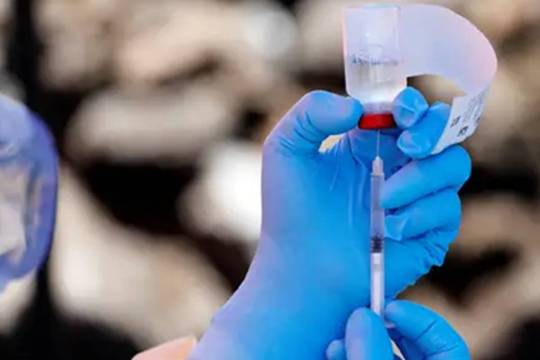
View On WordPress
#Bharat Biotech#coronavirus#covaxin#covaxin gets approval at uk#COVID-19#uk approved list of vaccine#UK government#UK News#ul travel from india#WHO approval
0 notes
Text
UK to add Covaxin to approved list from 22 November
UK to add Covaxin to approved list from 22 November
The UK government has said India’s Covaxin will be added to the list of approved COVID-19 vaccines for international travelers from 22 November, meaning those vaccinated with the India biotech-made jab will have to self-isolate after arriving in England. Wouldn’t have to.
The move follows the World Health Organization’s (WHO) emergency use list for Covaxin, the second most commonly used…
View On WordPress
#Covaxin#Covaxin Journey#current#harpianews#Indian Express#latest#news#UK approves Covaxin#world#world news
0 notes
Text
Covaxin Cleared By UK, Relief For Indian Students And Tourists
Covaxin Cleared By UK, Relief For Indian Students And Tourists
Now all Covid shots that have received emergency backing from WHO will be recognized by UK.
China and India’s Covid vaccines have been approved by the U.K. for travel into the country, clearing the way for tourists and foreign students who have been fully immunized with them to enter.
Immunizations from China’s Sinovac Biotech Ltd., state-owned Sinopharm, and India’s Bharat Biotech International…

View On WordPress
0 notes
Text
Big relief: UK opens doors for Covaxin takers from today, the problem of quarantine is also over
Big relief: UK opens doors for Covaxin takers from today, the problem of quarantine is also over
Britain has given great relief to people who have taken India’s indigenous corona vaccine Covaxin. From today, Britain has allowed people taking Covaxin to come here. Britain has added India’s Covaxin to its list of approved vaccines. From 22 November, travelers getting the Bharat Biotech-made vaccine will no longer have to be quarantined in the UK. Let us tell you that after the approval of the…

View On WordPress
0 notes
Text
UK Travel Updates
The UK govt. has conducted a further review of the red list on Friday (Nov. 19) and issued a press release, the release said, “From 4 am on Monday 22 November, the UK government will recognise vaccines on the World Health Organization’s Emergency Use Listing (WHO EUL) at the border. As a result, Sinovac, Sinopharm Beijing and Covaxin will be added to the existing list of approved vaccines for…
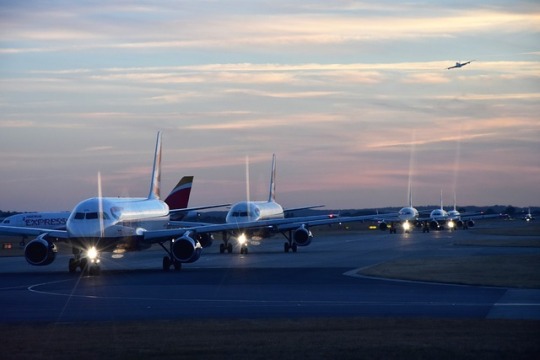
View On WordPress
0 notes
Text
Quarantine free travel for travellers with approved Covid vaccines including Sinopharm
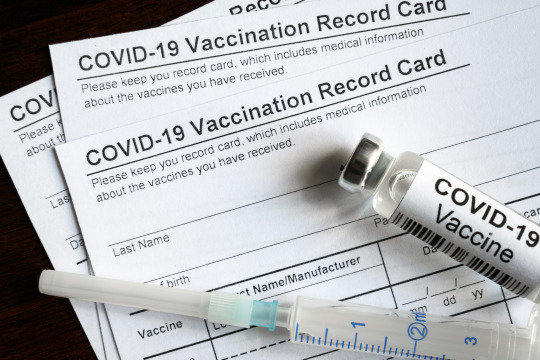
Quarantine free travel to passengers bound to the UK who have taken the Sinopharm, Sinovac, and Covaxin jabs can travel quarantine-free to Britain starting at 4 am on November 22.
Last Monday, the British government announced that they would update the list of UK approved vaccine list for travel from UAE later this month.
A joint statement issued by the UK Departments of Transport and Health and Social Care mentioned that from 4 am on Monday, November 22, the UK government will accept vaccines on the World Health Organization’s Emergency Use Listing (WHO EUL). This means that the Sinovac, Covaxin, and Sinopharm vaccines travel will be added to its UK approved vaccine list for travel to the UK. The government says this will benefit people travelling from countries such as the United Arab Emirates.
Additionally, “The US also recognises the vaccines on the WHO EUL for inbound travel,” added to the statement.
The approved vaccines list currently includes Pfizer BioNTech, Oxford AstraZeneca (including Covishield), Moderna and Janssen (J&J).
The UK government said that, from November 22, all under-18 passengers bound to England would be treated as fully vaccinated at the border and will be clear from self-isolation requirements on arrival, day eight testing and pre-departure testing.
However, they will be required to take a post-arrival test and a confirmatory free PCR test if they turn out to test positive.
The new changes are among the liberal travel regulations announced by the British government following the global lockdowns in March 2020.
UK Transport Secretary Grant Shapps said that as they continue to recover from the pandemic and expand the recognition of global vaccines, today’s announcements mark the next step in the restart of international quarantine free travel.
He also added that “By also simplifying the rules for international travel for all under-18s coming to England, we’re bringing further good news for families looking to unite with loved ones and another great boost for the travel sector.”
Meanwhile, Health and Social Care Secretary Sajid Javid said that the announcement is another step forward for the travel industry, businesses and for family and friends wanting to re-join or go abroad. However, the red list and quarantine free travel system remain essential in protecting the borders and that they will not hesitate to take action by adding countries to the red list if needed.
The WHO EUL Procedure was brought in during the 2014 Ebola outbreak to assess vaccines for use and support which countries require vaccinations and other selected medical products during public health emergencies.
The expansion covers Sinovac, Sinopharm and Covaxin to the WHO EUL, and around 1 billion doses of these vaccines have been delivered worldwide.
Read More:- Quarantine free travel for travellers with approved Covid vaccines including Sinopharm
This Article, Information & Images Source (copyright):- Travel Center UK Blog
0 notes
Text
As the number of COVID-19 cases and test positivity rates are showing signs of plateauing in major urban centres across India, we see desperate scenes in small towns and villages. We read about people dying in their homes unable to access medical care. We see pictures of people waiting for their turn to cremate their loved ones in funeral grounds. COVID-19 is a humanitarian disaster where no state is spared, poor or rich.
Now there is a talk of a COVID-19 third wave, if we are not able to vaccinate the population fast enough or if citizens do not follow the ‘social vaccines' (hand washing, use of masks and physical distancing). Let's examine the truth about the possibility of a third wave.
Also Read: COVID-19 vaccine | DCGI approves Phase II/III clinical trial of Covaxin on 2-18 year-olds
India's prized investment grade status hanging by a thread
Eli Lilly gives out licences for COVID-19 drug Baricitinib to Dr Reddy's, Torrent Pharma and MSN Labs
EU countries urged to halt non-essential travel from India
Pfizer, Moderna, Johnson and Johnson vaccines effective against B1617 variant of COVID-19
Adar Poonawalla promised 1.5 crore Covishield doses to Maharashtra after May 20: Rajesh Tope
No respiratory viral infection has been as deadly as the 1918 Spanish Flu. Data from the United Kingdom show us that the disease followed three waves. The second wave was more deadly and long-lasting than the first or third ones.
In the graph below, the area under the curve of the second wave was almost twice that of first and third waves combined. Agreed that the healthcare delivery landscape and the age pyramid may have been vastly different a century ago in the UK, but this historical data shows how an outbreak behaves in a population.
Deaths due to influenza and pneumonia in 1918-19, in the United Kingdom. Source: cdc.gov
The Waves
The first wave usually affects the most vulnerable sections of the population: the old, sick and the immuno-compromised. The second wave starts when the epidemic spreads into the general population, which may not have got the infection during the first wave and who do not have protective antibodies against the pathogen. The second and third waves of the infection is usually due to mutant strains, which may partially escape the immunity offered by previous infections.
In the case of Spanish Flu, the destruction caused by World War I and lack of laboratory surveillance capacity may have played a part in augmenting the spread and increasing mortality; but the learnings from that outbreak is definitely applicable in the case of COVID-19.
We have seen a lot of parallels between the Spanish Flu virus and the one causing COVID-19, though they are very different phylogenetically. Therefore, it is only reasonable to anticipate a third wave of virus infections and prepare for it.
Vaccine is the most potent tool that we have against COVID-19 infections. Though we do not have concrete data on the level of protection offered by the various vaccines against the mutant strains, most of the experts agree that some degree of protection against severe infections do exist. Therefore, relying on vaccines is the most rational way to prevent a third wave.
Short Term
But at present, we do not have the capacity to produce vaccines fast enough to vaccinate our entire population in the next few months. The combined production capacity of Covishield and Covaxin is only around 60-70 million doses/month and at this rate it may take more than two years to vaccinate India's population. So we have to look at other options, like scaling up capacity and ready-made vaccines from abroad.
The scaling up of capacity promised by the Serum Institute of India (SII) and Bharat Biotech, which manufactures the vaccines currently used in India, is going to take time and we cannot rely on that process to rapidly increase the rate of vaccination.
In the short term, pre-prepared vaccines from abroad seem to be the only viable option if we want to vaccinate the most vulnerable groups and economically-productive sections of the population rapidly. The decision to allow the import and use of Russian-made Sputnik V is a welcome step in this regard. We need more such vaccines, including China's Sinopharm which was recently approved for emergency use by World Health Organization.
Medium Term
In the medium-term, our existing vaccine manufacturing capacity should be repurposed to make COVID-19 vaccines. India supplies a major proportion of the vaccine requirements of Gavi-the vaccine alliance and has access to most of the technology platforms for vaccine production. When the United States has supported lifting the patent protection available to COVID-19 vaccines, India should be able to leverage its production capabilities and rapidly augment capacity.
Besides vaccination, in the short and medium term, we should also aim to increase the testing capacity. Only rapid identification of cases and strict isolation can help to flatten the curve till the vaccine rollout is adequate. Apart from this, we need to institutionalise the processes to ensure adherence to social vaccines. This can be done through a mix of behaviour change communication, regulatory efforts and community mobilisation. All of this has to be continued till we achieve a vaccination coverage of more than 80 percent.
Long Term
In the long term, however, we should be expecting similar pandemics to hit us. Be it antimicrobial resistance or newer viruses, there are a number of health threats which can manifest in several catastrophic ways. The only way out is to strengthen our health system and ensure a basic bouquet of healthcare services to our entire population.
The United Nations High Level Political Declaration on Universal Health Coverage calls for accessible and equitable healthcare services to every single person; and advocates greater emphasis on primary healthcare. India should be able to strengthen our three tier healthcare system by pouring more resources into the primary healthcare centres. It is estimated that almost 90 percent of the medical treatment demand can be satisfied at the primary health level and very few patients need to be referred to higher rungs of the healthcare ladder.
For this, we need greater public investment into the healthcare sector and increase budgetary allocation for sectors which shape determinants of health such as water, sanitation, nutrition etc. The public expenditure on healthcare is just above 1 percent of the Gross Domestic Product (GDP) and we need to raise it to at least 2.5 percent in the near term. We need to remember that several developed countries already spend more than 10 percent of its GDP as public health expenditure.
This pandemic has shown us the deficiencies in our healthcare system and laid bare the systemic under-investment in public health over the last half a century. Building a fair and equitable healthcare system, which works for all the people, may be the only solution to prevent (or rather limit the impact of) future pandemics.
1 note
·
View note